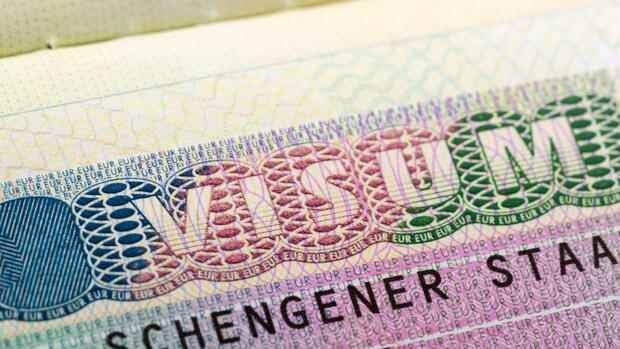The EU does not currently provide for an entry ban.
(Photo: IMAGO/Panthermedia)
Prague The European Union wants to make it more difficult for Russian citizens to vacation in the Mediterranean, but not to issue a blanket entry ban. The foreign ministers of the 27 EU countries agreed on this compromise on Wednesday in Prague. Europe’s chief diplomat Josep Borrell justified the step with a “security risk” resulting from the “significant increase in border crossings from Russia to neighboring countries”.
A fierce controversy ensued. Russia’s immediate neighbors – Baltics, Poles and Finns – had called for a far-reaching border closure to drastically reduce the “flow of Russian citizens into the European Union,” as they wrote in a joint paper. But the initiative met with resistance in other EU countries, including Germany.
Chancellor Olaf Scholz (SPD) argues that the Russian army’s attack on Ukraine is the war of Kremlin chief Vladimir Putin, not a war of all Russians. The Federal Government is of the opinion that a blanket entry ban would hit Russian regime critics in particular who want to leave their homeland. Borrell had also recently warned against breaking off all contacts with Russia.
The deal now envisages suspending the visa facilitation agreement that the EU and Russia signed in 2007. For many Russians, entering Europe in the future will involve more bureaucracy and higher costs. But it will still be possible.
Top jobs of the day
Find the best jobs now and
be notified by email.
Specifically, Russians will have to pay 80 euros for a visa in the future instead of the previous 35 euros. Stricter regulations have been in force for Russian business people and government officials since the end of February.
Months of waiting for a visa
The EU compromise corresponds to the line of the traffic light government. Federal Foreign Minister Annalena Baerbock (Greens) said that from now on a visa application could take months in case of doubt. At the same time, according to the Greens politician, it should still be possible for Russian students and journalists to come to Europe.
The EU Parliament, on the other hand, is demanding more extensive bans. “Tourism is not a human right,” criticizes Nicola Beer (FDP), Vice President of the European Parliament. “Strolling, vacationing and shopping in Europe are fun, but those who start wars shouldn’t expect this fun.”
The reasoning shows that the debate about entry bans is also fueled by frustration that the EU, despite extensive sanctions, has not been able to dissuade Russia from its aggression against Ukraine. The Russian economy is suffering from the trade penalties, but has not collapsed. The ruble has recently even increased in value as a result of the high raw material prices, making it comparatively cheap for Russians to stay in Europe.
Irrespective of the EU agreements, individual EU states want to close their borders to Russian citizens or have already done so: Estonia, Latvia, Finland and the Czech Republic, which currently holds the EU Council Presidency. Poland is also considering such a step. However, national restrictions are less effective: Russian citizens can circumvent them by first entering another Schengen border-free country.
More: Poland is without gas in winter – does Germany have to step in?
